Event Conference
High-Level Briefing on the 2022 UN Ocean Conference | Geneva Blue Talks
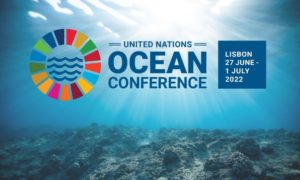
31 May 2022
15:00–16:00
Venue: Online | Webex
Organization: Portugal, Kenya, Geneva Environment Network
In the run-up to the UN Ocean Conference (June 2022, Lisbon), the Geneva Blue Talks aim to engage stakeholders in the process by focusing on key issues related to SDG14 that are both at the heart of International Geneva and of the upcoming conference.
About the Geneva Blue Talks

Pursuant to General Assembly decision 75/578, the 2022 UN Ocean Conference will be held from 27 June to 1 July 2022 in Lisbon. The conference will be co-hosted by Portugal and Kenya under the theme “Scaling up the ocean action based on science and innovation for the implementation of Goal 14: stocktaking, partnerships and solutions”. It will provide a critical opportunity to mobilize partnerships and increase investment in science-driven approaches to achieve SDG 14.
In the run-up to the conference, “Blue Talks” are taking place around the world, to discuss the core issues that will be addressed at the conference, contextualizing the debate with an overview of the status quo while underlining the urgency of finding solutions to the challenges identified. The objective is to trigger the debate and wide interest in Ocean related issues and by extend active participation in the UN Ocean Conference, to promote SDG 14, the sharing of experiences and innovative approaches, and to identify opportunities to mobilize the public and private sectors.
In this context, the Geneva Environment Network is collaborating with Portugal and Kenya to propose the Geneva Blue Talks, addressing issues that are both at the heart of International Geneva and of the UN Ocean Conference, thus highlighting the contribution of Geneva to the global ocean agenda. Geneva is indeed a major hub for global environmental governance, were questions regarding the sustainability of our ocean are addressed in various processes and negotiations. Protecting our ecosystems from pollution or climate change, developing a sustainable blue economy, providing data and science solutions to help decision-making processes, or creating synergies for achieving SDG14, are some of the topics discussed in Geneva that could contribute to help implementing measure to achieve SDG14.
About this Session
This high-level briefing provided an update on the UN Ocean Conference presidents’ priorities for the Assembly, as well as the latest information on preparations and expected outcomes.
Speakers
By order of intervention.
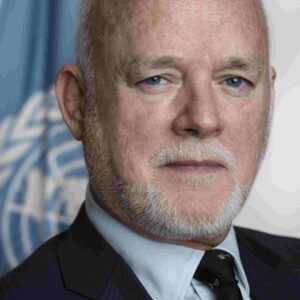
H.E. Amb. Peter THOMSON
UN Secretary-General’s Special Envoy for the Ocean
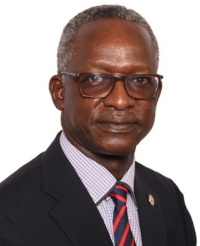
H.E. Amb. Benson H.O. OGUTU
Consultant and Advisor, Planning Committee, UN Ocean Conference 2022 & Ambassador to the Russian Federation, Kenya
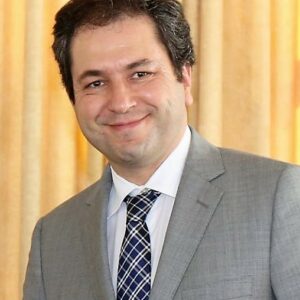
H.E. Amb. Alexandre LEITÃO
Special Envoy for Climate Affairs & Vice-President, II UN Ocean Conference Organizing Committee, Portugal
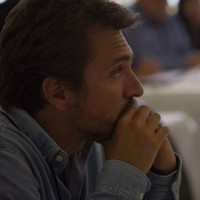
Diego VINCENZI
Chief of Staff, Minister of Environment and Energy, Costa Rica
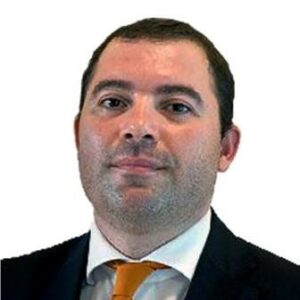
Ruben EIRAS
Secretary General, Fórum Oceano
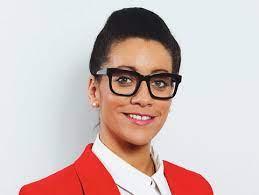
Minna EPPS
Head, IUCN Ocean | Moderator
Video
In addition to the live WebEx and social media transmissions, the video of the event is available on this webpage.
Summary
Setting the Scene and Expectations at the UN Ocean Conference
H.E. Amb. Peter THOMSON | UN Secretary-General’s Special Envoy for the Ocean
The UN Ocean Conference is held in support of SDG 14 to conserve and sustainably use the ocean’s resources. It is my firm belief that SDG 14 and the sustainable blue economy at its heart, are crucial for humanity’s future on this planet. The ocean’s health is vital to us all in the truest sense of the word. Just consider that over 50 per cent of the planet’s oxygen is produced in the ocean. Therefore, my daily mantra is no healthy planet without a healthy ocean, and the ocean’s health is measurably in decline. The measurement of this is observable in rates of habitat destruction, overfishing, subsidizing of industrial fishing fleets, the flow of chemicals and plastics, and through accelerating rates of the ocean’s acidification, deoxygenation and warming, leading to worldwide death of coral, changing ocean currents, the transformation of ecosystems and the inexorably rising sea levels. It sounds like a long list, but it is a much longer one.
We can stop the decline of the ocean’s health in 2022, and we made a great start in Nairobi in February with UNEA’s agreement to begin the work on a binding global treaty to end plastic pollution. We must continue this positive momentum by ending harmful fisheries subsidies through the WTO in Geneva this week. I hope that anybody present who has any influence on the delegations attending the WTO Ministerial Council, stresses the importance for us all of the bannings of harmful fisheries subsidies. Some $20 to $30 billion dollars worth of public funds are going mainly for the enjoyment of industrial fishing fleets out there diminishing stocks of fish. That must end and if we can do that, we will, along with Nairobi, have ticked a very big box. We can also do so by bringing in New York upon a robust and operable Biodiversity Beyond National Jurisdiction (BBNJ) Treaty for the governance of the high seas. We can add the 30 by 30 target to the Biodiversity COP15 in Kunming later in the year. There are huge advantages for both the planet and the ocean if we adopt the 30 by 30 target, and of course, by moving the climate finance needle decisively in the direction of the sustainable blue economy at UNFCCC’s COP27 in Sharm el-Sheikh in November.
The 2022’s highlight opportunity for SDG 14 progress will be the UN Ocean Conference in Lisbon. We are going to launch there a great fleet of science-based solutions, heavily powered by innovation and partnerships, as requested by the member states. I urge you to bring the best of your ideas, solutions, and resources to the Conference. There is enough on the table to see that our success will be forthcoming. We have already heard from New York that member states have agreed to the political declaration which has been under negotiation for many years so that will be adopted at the Conference in Lisbon. We had received hundreds of requests for side events, unfortunately, supplier space was greatly overcome by the demand so many will be happening around the conference in the Lisbon vicinity. We have also finalized the panels, co-chairs and moderators for the eight interactive dialogues that member states have mandated; they will be the moment of truth for us in assessing the progress of SDG 14. Today you will hear during this briefing about the special events, and I encourage you to ask questions because, in this panel, I see all the expertise that we need to give you the answers you seek. We must stop the decline in ocean health.
Expectations of the Co-Conveners of the UN Ocean Conference
H.E. Amb. Benson H.O. OGUTU | Consultant and Advisor, Planning Committee, UN Ocean Conference 2022 & Ambassador to the Russian Federation, Kenya
This is the second Ocean Conference, the first one being in 2017 when we came up with a declaration ‘Our Ocean, Our Future: Call for Action’. This was a major step in reversing the declining health of the ocean, along with other +1000 voluntary contributions or commitments that were made towards the implementation of SDG 14, which constituted a very highly successful outcome of the 2017 Conference. One and a half years thereafter, Kenya, Japan and Canada hosted the first-ever global Sustainable Blue Economic Conference in November 2018 in Nairobi. This Conference was predicated on two major pillars, one pillar of sustainability, dealing with issues of climate change, waste management and pollution control; and the second pillar of productivity, which addressed itself to accelerated growth, job creation, poverty alleviation and so forth. Thereafter we had many other Blue Economy Conferences because of the interest that was generated by the successful outcome of that conference in Nairobi.
Recognizing the need to maintain the momentum and political will in addressing the challenges faced in maintaining healthy productive oceans, Kenya and Portugal championed the resolution 73/292 that gave rise to the convening that is going to be taking place in June this year.
It is expected that this conference will build on the success of the 2017 conference in New York. It is also hoped that it will provide an opportunity to galvanize action through solution-oriented partnerships, financial pledges, and voluntary commitments aimed at reversing the decline of the health of the ocean and at the same time increasing its productivity.
Just an overview of the conference itself, it will be featuring plenary sessions, eight interactive dialogues, special events and side events. The theme of the conference is Scaling up ocean action based on science and innovation for the implementation of Goal 14: stocktaking, partnerships and solutions. The various interactive dialogues will also have their respective sub-themes, available on the website of the Conference. Amongst the especial events, there are four main ones:
- Youth and Innovation Forum
- Localizing Action for the Ocean: Local and Regional Governments
- High-Level Symposium on Water – Bridging SDG 6 and SDG 14
- Sustainable Blue Economy Investment Forum
Kenya will also be having several outside events of its own with other partners, and I want to thank them for their contributions to our preparatory process.
The final plenary is expected to conclude with inter alia reporting on the interactive dialogues, to be followed by the adoption of a brief very concise, action-oriented and intergovernmental agreed declaration to which the team working on it in New York to have done a fantastic job. Regarding the interactive dialogues, there will be eight of them, co-chaired by participants from various parts of the world but one is expected to come from a developing country and another one from a developed one. The selection of the co-chairs has now been finalized, as well as the selection moderators and panellists.
What do we expect out of this Conference? In accordance with the resolution that guides the Conference and its expected outcomes, it is expected to have a brief and concise negotiated declaration that should be action-focused, highlighting the science-based and innovative areas of action in support of SDG 14. There will be a report that will contain the summaries of the co-chairs of the interactive dialogues, and finally, a list of voluntary commitments made by all stakeholders, of which we have almost 1,800 commitments, and we want to encourage others to continue coming up with their commitments and register in our website.
In terms of the preparation of the Conference, Kenya and Portugal, together with the United Nations and other stakeholders, have been working tirelessly to deliver an impactful conference. Kenya and Portugal will be the co-presidents of the Conference itself, and as per the resolution, there will be other alternate presidents or vice-presidents that will be helping in the work of the Conference execution. As far as the technical concerns, UNDESA has been doing a fantastic job coming up with all the necessary documentation, background documents, concept notes, programs and draft outcomes of the various segments. For the political declaration, I would like to acknowledge the hard work done by the co-facilitators of Denmark and Grenada to have achieved the current document and therefore, we expect to have a conference that will be booming with success. I wish to note that there have been other informal preparatory working groups that have been able to help in the preparations, especially the concept notes that will be used during the interactive dialogues taking place. There is also a whole array of logistical matters that have gone into the preparation of this Conference. UNDESA and the UN team working with the Portuguese, have come up with a very comprehensive logistical note. On our part, as co-hosts, Portugal and Kenya have been involved in a series ah collaborative briefing sessions or Blue Talks, one of which is this one which is taking place now, to popularise and galvanize participation in this Conference.
My last point is the funding of the Conference: states and international donors as well as the private sector, financial institutions, foundations and other donors who are in a position to do so are encouraged to make voluntary contributions to a trust fund in support of preparations of the Conference and also to support in particular the participation of representatives of developing countries, priority being given to the least developed countries as well as the small island developing states. In other words, we do not want anybody to be left behind. This is a global challenge requiring concerted global solutions.
It is my hope that the Blue Talks such as this one will generate the much-needed interest from all, to enhance participation, and awareness of the expectations, and the opportunities of the second United Nations Ocean Conference in Lisbon.
Minna EPPS | Head, IUCN Ocean | Moderator
I have noted the special events that you mentioned, particularly a High-Level Symposium on Water which will link SDG 14 and SDG 6. I also applaud you for your kind spearheading of the first Global Blue Economy Conference which will also be a special event. As for the declaration, I understand that the final draft has been concluded. I would also like to thank other IGOs and civil society in general for the inclusiveness in terms of being able to comment on the political declaration as well as the involvement in the preparatory working groups. That has worked well in terms of cooperation, led by the various international organizations and UN entities, and we are all looking forward to that. We hear your emphasis on really galvanizing action, which is very timely with the theme of the Conference, and it is ensuring that it will be a very inclusive conference, allowing special accreditation to so many organizations. Civil society is grateful for that and to make sure that this is an inclusive conference because we all have a stake, and we want to make sure that no one is left behind.
H.E. Amb. Alexandre LEITÃO | Special Envoy for Climate Affairs & Vice-President, II UN Ocean Conference Organizing Committee, Portugal
The First United Nations Conference on the Ocean took place in New York, in which Portugal and Singapore had the roles of co-facilitators of the adopted political document: Our ocean, our future: call for action. At the time, Portugal and Kenya announced their readiness to host the Second UN Ocean Conference. The two countries agreed that they would both co-host it, supporting the High-Level Conference on the Sustainable Blue Economy held in Nairobi in 2018, and the Ocean Conference in Lisbon between 2 and 6 June 2020. Due to COVID19, these dates were postponed, and in September, through decision 75/578 of the UN General Assembly, the process resumed and established that Ocean Conference will be held between 27 June and 1 July 2022, also updating the tasks and dates of the preparatory process.
Resolution 73/292 reminds us that the SDGs are integrated, indivisible and balance the three dimensions of sustainable development: economic, social and environmental, therefore, it is a key point for Portugal. Speaking as a Special Envoy for Climate, in line with Ambassador Peter Thompson, something that really strikes us in Portugal where we consider the sea and the ocean action like a pillar of our climate and energy diplomacy and first priority, is how can we imagine climate action without 71 per cent of the earth’s surface, the oceans and the seas that produce most of the oxygen, have the highest potential for absorbing carbon, have the highest potential to feed a world-growing population and provide renewable energy? It is very difficult to imagine how could we draw some imaginary border where land, sea, and atmosphere are not totally integrated and where the SDGs could have boundaries. This could not work. This is one of the motives why Portugal was willing to organize and co-host this UN Ocean Conference, as well as our long-time commitment to multilateralism.
I was surprised to listen to a European colleague telling me that the climate question is already so complex, and you Portuguese want to bring an additional layer of complexity with the sea? But then I said, okay, but how do you want to manage this without the seas?
This for us is a priority and of course, this conference comes after a very intense semester of several events from Palau to Brest in France, from Nairobi to Stockholm, where the ocean was relatively in evidence. But we looked at all these events in a complementary manner to feed the UN Ocean Conference and to allow the Conference itself to feed the COP27 as we really want to straighten the references to the oceans, the seas and ocean action in the final text of COP27 in Sharm el-Sheikh. We want to highlight the nexus ocean climate, as we did in COP26 in Glasgow. It was a hard battle to fight.
We have urgency in action; we need to rely on ambitious national plans with ocean-based solutions; we need to promote, respect and enforce international treaties approved for better governance; we need also to apply to implement the 30 per cent of marine effectively protected areas, critical for the stocks of fish the classical sea economy and not only the blue economy in the sense of sustainable blue economy; we need to create, innovate and accelerate this dynamic, responsible and sustainable good economy. This will be done through the combined efforts of governments, economic actors, civil society, and experts; equitable access to scientific solutions for our sustainable exploration of the oceans; efficient mobilization of blue capital with creative solutions and matching financing partners and beneficiaries; and of course, mobilization of people. Each one of us can make a difference with responsible choices, and the UN Conference has also these two roles. One is to highlight that there are funds for creative, innovative, and efficient economic solutions, and to tell everybody that we are all concerned, and we can do something for this cause.
There are several goals for this Conference, however, the resolution 73/292 establishes that UNOC will approve, by consensus:
- A short, concise, action-oriented, negotiated declaration between governments that highlights innovative, science-based areas of action that support the achievement of SDG14
- A report with summaries prepared by the co-chairs of the Interactive Dialogues
- A list of voluntary commitments for the pursuit of SDG 14 registered after the first UN Ocean Conference
We have 8,818 accredited bodies, not all of them to be in Lisbon. During the first Conference, 108 entities asked for accreditation. In 2022, 942 entities requested accreditation, giving a picture of how the interest in oceans is evolving in a positive trend, but also raising challenges. This will be addressed during the Plenary Sessions and parallel Interactive Dialogues, special events and side events, as has been mentioned.
The Interactive Dialogues are:
- Addressing Marine Pollution
- Promoting and strengthening sustainable ocean-based economies, in particular for Small Island Developing States and Least Developed Countries
- Managing, protecting, conserving and restoring marine and coastal ecosystems
- Minimizing and addressing ocean acidification, deoxygenation and ocean warming
- Making fisheries sustainable and providing access for small-scale artisanal fishers to marine resources and markets
- Increasing scientific knowledge and developing research capacity and transfer of marine technology
- Enhancing the conservation and sustainable use of oceans and their resources by implementing international law, as reflected in the United Nations Convention on the Law of the Sea
- Leveraging interlinkages between Sustainable Development Goal 14 and other Goals towards the implementation of the 2030 Agenda.
The special events correspond to the priorities requested by the UN, and they are organized by Portugal, Kenya, and the UN. These are four:
- High-Level Forum on Local and Regional Governance (25 June, Cruise Terminal, Port of Leixões, Matosinhos)
- Youth and Innovation Forum (24-26 June, Nova School of Business and Economics Carcavelos, Cascais)
- High-level Symposium on Water “Bridging SDG 6 and SDG14” (27 June, Altice Arena, Lisbon)
- Sustainable Blue Economy and Investment Forum (28 June, Estoril Congress Center Cascais)
Finally, we received 517 requests for side events, 72 of them virtual. Unfortunately, only 78 fit in the Blue Zone so we have asked their promoters to merge some of them. I believe that more than 200 side events will be somewhere around town.
Diego VINCENZI | Chief of Staff, Minister of Environment and Energy, Costa Rica
Costa Rica has for a long time been committed to the blue agenda, the ocean’s agenda and to the successful achievement of SDG 14. Last year we launched several important initiatives in this direction, including both lesser and core matters. Costa Rica launched its Marine Residue Management Plan for 2030, which was very well accepted by different stakeholders. We created an Environmental Assessment Policy to regulate mariculture and aquacultural activities, as no legal framework existed for these activities.
The most important achievement in the past few years in our blue or oceans agenda was the expansion of Cocos Island National Park and the Underwater Seamounts. It was a rough process with different stakeholders and actors, but we made the biggest or at least one of the biggest expansions worldwide. There now is a 53,000 square kilometres protected area on our Eastern Pacific Coast, surrounding Cocos Island and Underwater Seamounts. This is also linked to the Pacific Corridor Waterways Initiative, in which the governments of Panama, Colombia, and Ecuador also participate, resulting in the creation of a 500.000 square kilometre marine protected area, among the biggest in the world, between the four countries.
As Costa Ricans, we are fully committed to our oceans, it is in our DNA. We have a strong ocean agenda which the new administration will abstain from modifying.
As I tell my children, by respecting the whole environment, all living things, they are respecting themselves.
Ruben EIRAS | Secretary General, Fórum Oceano
Fórum Oceano is Portugal’s blue economy cluster, representing around 50 per cent of the country’s blue GDP and comprising 152 members of all sectors of the blue economy. According to us, a sustainable economy as the planet’s mega sector. While fighting climate change, the blue economy can provide sustainable and safe seafood, energy transport, and assets that can be applied to health and prosthetics for sports. Our aim to fulfil the privilege of being designated as organization for UN National Conference is to use the blue economy as a catalyser for new middle-class entrepreneurship. For is therefore important to have many companies doing business in a sustainable way. The UN Ocean Conference can thus be a moment to communicate a blue dream for all: build the world’s most profitable system of ocean economy that creates jobs, and wealth while restoring ocean biodiversity. This can be done by building on the concepts of the European Union Green Deal, based on digitalization, decarbonization, and circularization. Practically speaking, this means that to have a competitive blue sustainable business, profits have to be made while achieving positive environmental and social impacts. For doing that, we must be able to manage the costs of transition. These entail costs for re-engineering the processes of decarbonizing and circularization in industrial processes to reduce waste and the environmental footprint. This allows a paradigm shift from a linear perspective to a non-linear and circular one.
Sectors for the future of the blue economy
- The new blue ESG (Environmental, Social and Governance) powers are discussed in various areas, especially in relation to the deep-tech area (e.g., artificial intelligence, material, robotics) for ocean observation and maritime industries. Getting the right information from the ocean is key to having the right MPA management and building businesses that are beneficial to ecosystems.
- Ocean Renewable Energies are going to be the major source of green hydrogen. Then you have all the technology for greening transport and shipping. For instance, new proposal systems that use in all the new-tech wind cells employ offshore wind for propelling container ships.
- Blue tourism must employ more solar and new forms of sustainable energy.
- In the area of sustainable seafood and fisheries, numerous healthy examples of scale-up offshore aquaculture algae are being developed and these will permit to have sustainable multi-trophic aquaculture with high technology and without using unsustainable feeding systems. This also comes to consumers’ behaviour, as we should all be open and make more sustainable food choices more often.
- Technology for Ocean Restoration can be used for artificial reefs. Currently, we are seeing more financial instruments being provided to find solutions and by coupling these with technology.
From all these sectors, a lot of wealth can be produced while applying solutions that tackle climate change and reduce the environmental footprint. Therefore, decarbonizing, circularizing and digitalizing are key to achieving this goal. It is also important to adapt careers to this pace by providing the right training and skills. Blue experts are central to this process: fishermen for instance have to manage different technologies, know legal frameworks and have the right financial, maritime engineering and economic skills. The same rationale should also apply to other areas; indeed, all blue experts should have a systemic view, rationale, and competencies to have a successful impact on ocean challenges. These topics will all be discussed at the Conference where Fórum Oceano will have a side-event area. From next week, registration will be possible from our B-to-B platform.
In conclusion, all these are opportunities for human connection to put innovation into action. This will allow us to be successful in saving the ocean, serving the planet, and bringing prosperity to society.
Q&A
Q: Geneva is home to a lot of international organizations and the location of many multilateral negotiations. Still, ocean sustainability is often absent from these processes with a few exceptions being the WTO harmful fisheries subsidies negotiations or plastics. How can the international community in Geneva support the UN Ocean Conference and ultimately SDG 14?
Peter THOMSON: Regardless of whether you are based in Geneva or in any of the other UN system headquarters, we are all in this together. There are no excuses for anybody to think that the ocean is not their responsibility. The ocean is vital, it amounts to 50 per cent of our oxygen. If that is unclear to some, the whole existential point of SDG 14 and of the UN Ocean Conference also are. The UN family is all in this together, as everybody in every country.
Q to Costa Rica: The blue economy in Costa Rica seems to be inclusive and cross-sectoral. Can you explain how the government of Costa Rica was able to have everyone on board including civil society and the private sector? From a governmental perspective, what was the key to this success, allowing to have this inclusive approach?
Diego VINCENZI: For all the processes mentioned earlier, the Marine Investigative Management, Environment Assessment Policy, and that whole discussions regarding these big marine protected areas in Cocos National Park, we held tables with civil society, NGOs, and governmental agencies. We tried to involve every link of the chain because these are decisions that affect all of us as we own the resources. Interestingly, most of our Mariculture projects here in Costa Rica are led by women, because in the past, men used to fish and women stayed at home. Most of them are also single mothers and these projects allow empower them. This had support from the Government, but it grew organically and spontaneously. Women in coastal areas began to produce or co-produce in their homes while their husbands were fishing and kick-started these kinds of projects. Therefore, the key to our success was getting people involved at these tables to discuss the policy we try to launch, so no one is left behind.
Q: A question to Kenya and IUCN, are there plans to lobby for more countries to join the great blue wall initiative in Portugal?
H.E. Amb. Benson H.O. OGUTU
It is worth stressing that the full participation from all segments of civil society, organizations, the private sector, and the government are key to the future of the ocean. Financing has been a major hindrance towards fully realising a sustainable ocean economy and implementation of SDG 14. It is in this regard that we also repeat the call for upscaling and producing new ambitious voluntary commitments that can enable the global community to realise this noble cause.
Q: Ocean issues are wide. What are the points that the UN Special Envoy see as being the crucial outcomes of Lisbon?
Peter THOMSON: As the Special Envoy to the Ocean, the Secretary-General asked me to let a thousand flowers bloom. To thousand problems and there are ten thousand solutions, which can secure the ocean we want for our children and grandchildren. What I expect to see in Lisbon are breakthroughs in the aquatic food side. We should transition to new forms of food. As we moved in the past from being hunter-gatherers to farmers of the sea, we can now take that transformative step to achieve ocean sustainability, whether it is pollution control or fisheries management. The hardest part is the control of greenhouse gas emissions, which are causing the decline of the ocean’s health. My key takeaway is that we must accept that everything is connected and that we must quickly break out of the paralysis we have been in and act. The knowledge accumulated by scientific bodies in the past years allows us to leave Lisbon with the partnerships that will make all this happen. Let innovative ideas guide us, but these projects must be connected to finance. In Lisbon, it will be all about connecting the dots and moving on to better things. I am sure that when we get together for the Third UN Ocean Conference, we will be seeing the massive progress deriving from what we decided in Lisbon.
Concluding Remarks
Mina EPPS:
It is possible to almost feel the energy, the positivism and the Second UN Ocean Conference will hopefully be historic.
VIDEO MESSAGE FROM MACHARIA KAMAU
Kenya is extremely pleased with the amount of energy and engagement generated by the Blue Talks globally. At last count, there were over 70 countries and organs in the process of trying to organize Blue Talks. This is momentum and interest that produces the commitment we need in preparation for this signature event on the United Nations and the international community calendar: the United Nations Ocean Conference. Therefore, we are glad that everybody is made aware of the importance of this event, and of the ocean’s agenda for planet Earth and life, through these Blue Talks. The blue economy is a much-talked topic as nations have built entire economies on the back of oceans. But there also are blue societies, blue energy and many other opportunities and challenges related to the ocean that the Blue Talks are instrumental in sharing. If we do not get the ocean’s agenda right, we are going to undermine every effort for creating greater opportunities: from transiting from energy conditions on earth to the use of carbon-based energy products. Ultimately, missing the ocean’s agenda will prevent success in the management the climate change. It is evident we will have to do things differently, whether it is about how we apply science, how we talk about the education realm, or how we mobilize people to better protect planet Earth in their lives. All aspects of human lives in relation to ecosystems must change in face of the symbiotic in their relationship. We are currently living in the UN Decade for Development, focused on the issues of oceans. Still, the focus should be on all SDGs in order to achieve SDG14, since it represents the realization of them all.
To this purpose, Kenya and Portuga have taken their commitment as co-hosts of the UN Ocean Conference very seriously, creating the conditions to enable participants to provide their contribution. As a result, global interest has been enormous and we are anticipating numerous governments, policymakers NGOs, private sector entities and civil society representatives to be in Portugal.
In conclusion, we can say a lot about how crucially important the ocean’s agenda is for the management of our climate; for the food in global markets and food chains; about how we can make better contributions and use of those resources. Still, until we change our attitude and commitment toward the oceans, everything we do and say will remain at the level of rhetoric. The primary message of the UN Ocean Conference is now the time for action. Action at the individual, community, and governmental levels, through the private sector and the scientific community. Science is running behind the challenges addressed in the ocean’s agenda. Therefore, it is necessary to make the investments around science so that it becomes part of that transformative change we need to save our oceans and preserve the climate and ecosystems for a better future.
